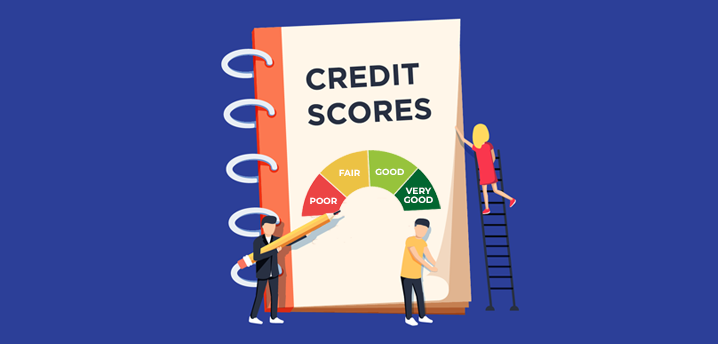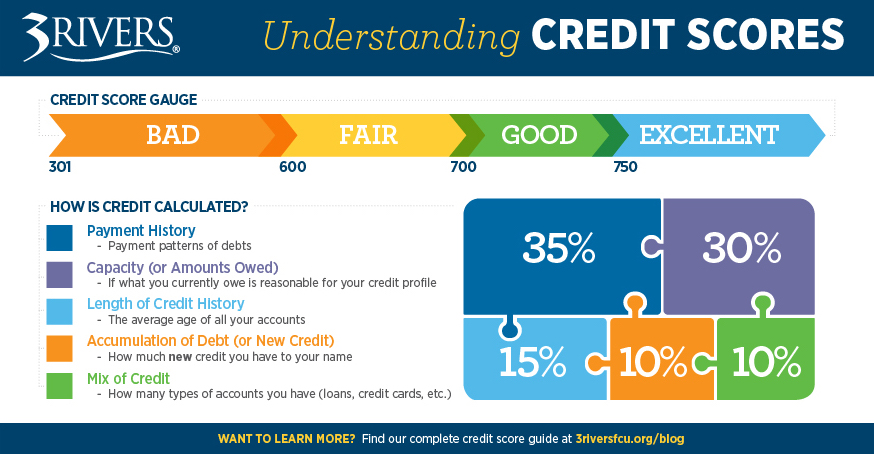Understanding Your Credit Score: A Comprehensive Guide to Navigating the Financial Landscape
Related Articles: Understanding Your Credit Score: A Comprehensive Guide to Navigating the Financial Landscape
Introduction
In this auspicious occasion, we are delighted to delve into the intriguing topic related to Understanding Your Credit Score: A Comprehensive Guide to Navigating the Financial Landscape. Let’s weave interesting information and offer fresh perspectives to the readers.
Table of Content
Understanding Your Credit Score: A Comprehensive Guide to Navigating the Financial Landscape

In the modern financial world, a credit score is a critical component of your financial well-being. It acts as a numerical representation of your creditworthiness, influencing your access to loans, credit cards, and even employment opportunities. Understanding your credit score and the factors that influence it is essential for making informed financial decisions and securing favorable terms on financial products.
This comprehensive guide will delve into the intricacies of credit scores, exploring the factors that contribute to their calculation, the significance of a strong credit score, and actionable steps to improve or maintain a healthy credit profile.
What is a Credit Score?
A credit score is a three-digit number that summarizes your credit history and serves as a measure of your creditworthiness. It is generated by credit bureaus, such as Equifax, Experian, and TransUnion, based on information collected from lenders and other financial institutions.
How is a Credit Score Calculated?
Credit scores are calculated using a complex algorithm that considers several key factors:
- Payment History (35%): This is the most significant factor, reflecting your consistency in making timely payments on your credit accounts, such as credit cards, loans, and utilities. Late payments or defaults can significantly lower your score.
- Amounts Owed (30%): This factor assesses your credit utilization ratio, which is the amount of credit you are using compared to your available credit limit. A high utilization ratio indicates a higher risk to lenders and can negatively impact your score.
- Length of Credit History (15%): A longer credit history generally indicates a more stable financial profile. The age of your oldest account and the average age of all your accounts are considered.
- Credit Mix (10%): This factor assesses the diversity of your credit accounts, including credit cards, mortgages, auto loans, and other types of credit. A mix of different credit types suggests a more responsible approach to borrowing.
- New Credit (10%): This factor reflects recent credit inquiries, such as when you apply for a new credit card or loan. Frequent inquiries can signal a higher risk to lenders and may temporarily lower your score.
The Importance of a Strong Credit Score
A strong credit score opens doors to a wide range of financial benefits:
- Lower Interest Rates: A good credit score qualifies you for lower interest rates on loans, credit cards, and mortgages, saving you significant amounts of money in interest payments over time.
- Increased Loan Approval Odds: Lenders are more likely to approve your loan applications with a strong credit score, providing you with access to the funds you need for important purchases or financial emergencies.
- Higher Credit Limits: Credit card companies often offer higher credit limits to individuals with excellent credit scores, providing more financial flexibility.
- Improved Employment Opportunities: Some employers conduct credit checks as part of their hiring process, and a good credit score can demonstrate financial responsibility and reliability.
- Lower Insurance Premiums: In some cases, insurance companies offer discounts on premiums to individuals with good credit scores, recognizing their financial responsibility.
Building and Maintaining a Strong Credit Score
Building and maintaining a strong credit score is an ongoing process that requires consistent effort and responsible financial habits. Here are some key strategies:
- Pay Bills on Time: Make all your payments on time, whether it’s credit card bills, loan payments, or utility bills. Late payments can significantly damage your credit score.
- Keep Credit Utilization Low: Aim to use less than 30% of your available credit on each credit card. This demonstrates responsible credit management and minimizes your risk of overspending.
- Diversify Your Credit Mix: Having a mix of different credit accounts, such as credit cards, mortgages, and installment loans, shows lenders that you can manage various types of credit responsibly.
- Monitor Your Credit Report Regularly: Check your credit report at least once a year for any errors or inaccuracies that could negatively impact your score.
- Avoid Opening Too Many New Accounts: Frequent credit applications can lower your score temporarily. Only apply for new credit when you truly need it.
- Consider Secured Credit Cards: If you have limited credit history, a secured credit card can be a good starting point. This type of card requires a security deposit, which minimizes the risk to the lender and can help you build a positive credit history.
Frequently Asked Questions About Credit Scores
Q: How often is my credit score updated?
A: Credit scores are typically updated every time there is a change in your credit report, which can occur monthly or even more frequently.
Q: How can I get a free copy of my credit report?
A: You are entitled to a free copy of your credit report from each of the three major credit bureaus (Equifax, Experian, and TransUnion) once every 12 months through AnnualCreditReport.com.
Q: What is a good credit score?
A: A good credit score generally falls within the "fair" to "excellent" range, typically starting around 670 and above.
Q: What can I do if I find an error on my credit report?
A: If you discover an error on your credit report, you can dispute it with the credit bureau and provide supporting documentation.
Q: How long does it take to improve my credit score?
A: Improving your credit score takes time and consistent effort. It can take several months or even years to see significant improvement, depending on the severity of your credit issues and your commitment to positive financial habits.
Tips for Improving Your Credit Score
- Pay Down Existing Debt: Reducing your outstanding debt balances can significantly improve your credit utilization ratio and boost your score.
- Negotiate Lower Interest Rates: If you have high-interest debt, consider negotiating with your creditors to lower your interest rates and reduce your monthly payments.
- Consider a Balance Transfer: Transferring balances from high-interest credit cards to lower-interest cards can save you money on interest and help you pay down debt faster.
- Become an Authorized User: If you have a family member or friend with a good credit history, ask to be added as an authorized user on their credit card account. This can help you build credit history without having to open your own account.
- Use a Credit Builder Loan: These loans are designed specifically to help individuals with limited credit history build positive credit.
Conclusion
Understanding your credit score and the factors that influence it is essential for navigating the financial landscape effectively. A strong credit score opens doors to a wide range of financial benefits, including lower interest rates, increased loan approval odds, and improved access to financial products. By adopting responsible financial habits, monitoring your credit report regularly, and taking proactive steps to improve your credit score, you can position yourself for a brighter financial future.








Closure
Thus, we hope this article has provided valuable insights into Understanding Your Credit Score: A Comprehensive Guide to Navigating the Financial Landscape. We appreciate your attention to our article. See you in our next article!
